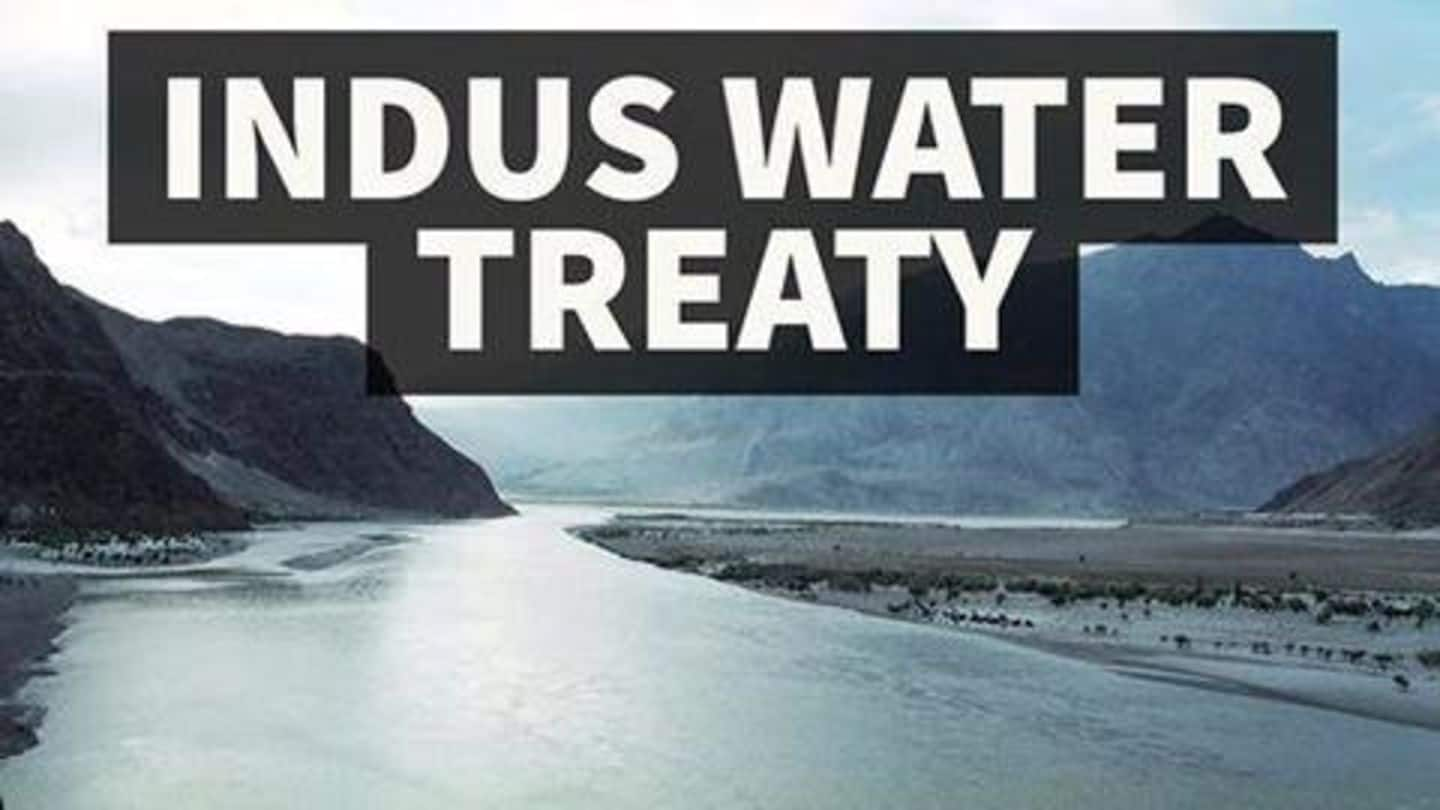
What is Indus Waters Treaty? Here's everything you should know
What's the story
In the aftermath of the Pulwama terror attack, the Center has decided to block water supply to Pakistan from the rivers flowing from India.
It intends to stop India's share of water from the rivers to the neighboring country under the Indus Waters Treaty.
The Center's move has, however, triggered a debate about the Treaty.
Here's everything you should know about the water-sharing pact.
About
About the Indus Waters Treaty
The Indus Waters Treaty is a water distribution agreement between India and Pakistan brokered by the World Bank. It is a trilateral agreement entered into between India, Pakistan, and the World Bank.
The Treaty was signed by the then-Indian Prime Minister Jawaharlal Nehru and Pakistani President Ayub Khan on 19 September 1960.
It administers how the Indus River and its tributaries would be utilized.
Post-partition
Indus waters, a major cause of friction post 1947 partition
The Indus River crosses over Tibet, India, Pakistan, and Afghanistan before emptying into the Arabian Sea near Sindh, Pakistan.
After the partition of India in 1947, the Indus Waters were a major cause of friction between India and Pakistan.
The need for a permanent solution was felt when tensions escalated in 1951. Negotiations continued for nine years before the Indus Waters Treaty was signed.
The Treaty
What exactly is the Indus Waters Treaty?
The Treaty lays down precise directions with respect to the distribution of water from six rivers that flow through India to the Indus Basin.
According to it, India has full rights over Ravi, Beas, and Sutlej rivers, while Pakistan has control over Indus, Jhelum, and Chenab rivers.
However, India is allowed to use 20% of the Indus water for irrigation, power generation, and transportation.
Details
It is one of the most successful water-sharing treaties
The Indus Waters Treaty is considered one of the most successful water distribution treaties on an international level.
Since the agreement was signed, Pakistan and India have engaged in as many as four major wars. However, the two neighboring nations have not engaged in any water wars so far since 1960 and the Indus Waters Treaty has remained in force.
The reason
Why does India want to stop water supply to Pakistan?
Blocking the flow of water to Pakistan is the latest in the series of India's moves against its neighbor to isolate it in the wake of Pulwama attack.
Accusing it of providing a safe haven to terrorists, India blamed Pakistan for the attack in Jammu & Kashmir in which 40 CRPF personnel were martyred. Pakistan-based Jaish-e-Mohammed terror outfit claimed responsibility for the attack.
Information
But can India block water supply to Pakistan?
The Indian Government wants to block water supply to Pakistan and divert it for the welfare of J&K and Punjab and river Yamuna's revival. However, stopping the flow of water to Pakistan isn't something India is allowed to do as per the Indus Waters Treaty.